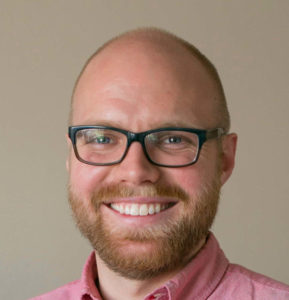 By Eric Lynne
By Eric Lynne
Despite my best intentions, New Year’s Resolutions haven’t always worked out for me. I buy the gym membership, I go for a few weeks—and then I get derailed by the flu. I start practicing the piano again, I learn half a new piece—and then I quit at the key change. I go to the library, check out all of the Spanish audio tapes—and after lesson numero dos, it’s ¡Adiós amigos!
If you’ve had similar troubles following through on your New Year’s Resolutions, perhaps it is time to ramp up your efforts. This year, I’m going to try these steps:
Step One: Make an effective goal
There are many methods to creating an effective goal, and most of them have been turned into clever acronyms. Perhaps the most famous of the multi-step goal-making acronyms is SMART described below:
- Specific: The more detail you add into your goal, the better you will be able to plan to achieve it
- Measureable: Having a measurable goal allows you to keep track of your progress
- Achievable: Make sure you are striving toward something you can actually attain
- Relevant: Investigate and interrogate your goal to make sure it is something you actually want
- Time-bound: Use a deadline to keep yourself on track (even better, use multiple deadlines along the way).
Though SMART goals are the most widely known, my personal favorite is from the Character Lab, and it’s called WOOP. The driving philosophy behind a WOOP goal is mental contrasting, which requires you to consider the obstacles that may impede your ability to reach the goal. Unlike just thinking positively, WOOP asks you to confront your weaknesses and find a way to overcome them.
- Wish: Write down your specific wish, that is, what you hope to achieve
- Outcome: Imagine the best result of your wish once it is achieved
- Obstacle: Think of an inner obstacle, something within your locus of control that may prevent you from obtaining your wish
- Plan: Put together a specific plan to overcome the inner obstacle; make sure it is an actionable step that you can take that ensures your obstacle will not distract you from achieving your goal
If you want to learn more about WOOP, I suggest you check out the Character Lab’s website or listen to the podcast episode put out by NPR’s Hidden Brain on WOOP goals.
Step Two: Build systems that lead you to your goal
Having a goal is nice, but unless you put systems in place to help you reach that goal, you’ll probably have a hard time achieving it. After you have built a strong goal, it is time to build equally strong routines and processes you can commit to that will put you on a path to achieving your goal. The most important part of this stage is actually building systems that work for you instead of trying to fit yourself into a system.
Here’s a personal example of what not to do.
About seven years ago I got a ukulele for Christmas. I did not know how to play the ukulele at all, but I was excited to get started. I devised what I thought was a pretty foolproof plan. I had played piano for some time in my youth, so I knew my scales up and down the keys. Therefore, I figured that if I put in the time to learn all of the scales first, I would eventually learn how to play the ukulele and would have an easy time learning all the songs I wanted to play.
But I forgot something about myself: I hated practicing my scales when I played piano. The monotony of practicing the same scales over and over again might have been what led me to quit playing piano in the first place. So it is no surprise that after a few days practicing my scales, fingertips blistered to the bone, I didn’t touch my ukulele for another two years.
Two years later, I picked up the ukulele again. This time, I decided to try learning in a different way: by playing songs instead of scales. I started with the simplest songs that only used the simplest chords and the simplest strumming patterns. After I learned how to play my first song (that two-chord jingle from the film Juno), my fingertips were raw again—but I did not care because I could play a whole song! My excitement allowed me to keep practicing as my blisters turned into calluses. Eventually, by playing every day for just an hour or two and learning a new chord every so often, I got pretty good at playing the ukulele. Now I’m even playing music of my own making.
There is nothing wrong with either system. Learning my scales first probably would have worked if I had kept with it. But that style or learning was not for me. That system did not fit me.
So find a system that works for you. Even if it takes a little longer to get there, finding a program you can stick to is more important than attempting the most efficient system that gets you nowhere.
Step Three: Add accountability and support
Because so many of our resolutions deal with private matters—our weight, our grades, our stress—many people pursue these goals individually, sometimes even secretly. But it’s hard to go it alone. Additional encouragement, mentorship, praise, and support can help keep you motivated.
We at Galin know the importance of accountability and support because they are fundamental to our students’ success. Whether students are working to improve their scores on standardized tests, complete their college applications, or master the executive functioning skills, our formula for success at Galin is pretty much the same: pair students with great mentors who will help students stay on track, stay motivated, and feel supported.
Best of luck sticking achieving your goals this year. Here’s what a few of our tutors have committed to for 2020:
Eddie: “Run more miles every week.”
Melody: “4.0 next semester!”
Merritt: “To cook more interesting food.”
Gabbi: “Be kinder to myself and practice more gratitude.”
Eric: “I want to write a full-length play.”
Sylvia: “Perfect my hand-to-hand (doing a handstand on someone else’s handstand — yes, while they’re standing up!”
Emily A: “Go to the gym more.”
Juliette: “To read one book a week!”
Emily B: “To get better at planning out my week ahead of time.”
Hannah B: “There are two things that make my resolution list every year: visit one new place and read one book a month.”
Anthony: “I’d like to learn basic Spanish in the coming year.”




